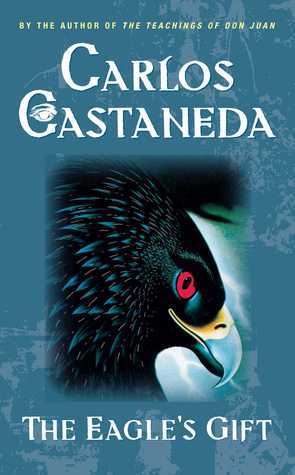
A Separate Reality: Further Conversations with Don Juan
Book Description
Reality is not what it seems. Carlos Castaneda dives deeper into the mesmerizing world of Don Juan, a master sorcerer who challenges the very fabric of perception. With each conversation, the boundaries of ordinary life dissolve, revealing a vivid tapestry of power, transformation, and the quest for knowledge that defies convention. As mysticism collides with raw, existential truths, Castaneda grapples with his own understanding of self and purpose. Can one truly transcend the limits of perception, or will the quest for enlightenment lead to losing oneself entirely? Discover the haunting allure of a separate reality. What if the key to awakening lies just beyond the edge of comprehension?
Quick Book Summary
"A Separate Reality" continues Carlos Castaneda’s journey into the mystical teachings of Don Juan, a Yaqui sorcerer. The book documents Castaneda’s efforts to comprehend the nature of perception and reality, as Don Juan pushes him beyond the limits of ordinary awareness. Through mind-altering plants, enigmatic exercises, and paradoxical wisdom, Castaneda faces his fears and doubts about the unknown. As the boundaries between the rational and the mystical blur, he is confronted with the possibility that reality is not fixed but subjective and malleable. The narrative blends anthropology with spiritual inquiry, emphasizing the transformative power of knowledge and the psychological challenges involved in pursuing enlightenment beyond conventional understanding. The book ultimately invites readers to question their beliefs about the world and themselves.
Summary of Key Ideas
Table of Contents
The Fluidity of Perception and Reality
Carlos Castaneda’s continued apprenticeship under Don Juan centers on an exploration of perception’s boundaries. Don Juan introduces Castaneda to the concept that reality is not absolute but a construct shaped by habitual ways of seeing and interacting with the world. Through powerful experiences—some facilitated by psychotropic plants, others by direct instruction—Castaneda learns that knowledge and perception are fluid, deeply influenced by intent and awareness rather than by external facts alone. This notion upends his training as an anthropologist and challenges the foundational beliefs of Western science.
Teachers, Apprenticeship, and Knowledge Transmission
At the core of the relationship is Don Juan’s role as a mentor, guiding Castaneda into the unknown. Castaneda’s journey is marked by confusion, resistance, and the persistent questioning of Don Juan’s methods. Apprenticeship is revealed to be a demanding process; genuine understanding requires not just intellectual grasp but personal transformation. Don Juan’s unconventional pedagogy is designed to erode Castaneda’s certainty, pushing him to experience rather than explain the mystical aspects of existence. Their dialogues emphasize experience as a path to knowledge over theory.
Fear, Power, and the Challenge of Transformation
Castaneda’s encounters are fraught with fear, self-doubt, and the paradoxical pull of power. Don Juan teaches that facing fear is critical; it is both a barrier to and a catalyst for transformation. The journey toward knowledge involves risking one’s identity and accepted realities. Through exercises in seeing, dreaming, and interacting with the spirit world, Castaneda is confronted with his limitations. Power, as Don Juan presents it, is not domination over others but mastery over perception, and it requires humility and courage to pursue.
Techniques and Practices for Altering Awareness
The book details various techniques for altering awareness, from ingesting sacred plants to specific physical and mental exercises designed to break habitual perception patterns. These practices aim to grant the apprentice the ability to see a "separate reality"—a domain inaccessible to ordinary senses. The process is unpredictable, often bewildering, and sometimes terrifying. The techniques are not mere rituals; they are intended to provoke direct experience of an expanded reality and to test the apprentice’s resolve for swimming in the mysteries beyond ordinary consciousness.
The Quest for Meaning and the Limits of Rational Thought
Ultimately, Castaneda’s journey raises deep philosophical questions about the nature of reality and the purpose of knowledge. His struggle illustrates the limits of rationality in confronting the sacred or ineffable. The quest for enlightenment, as embodied by Don Juan, involves embracing ambiguity and letting go of the ego’s need for certainty. Castaneda’s inner turmoil mirrors the archetypal search for meaning, suggesting that true awakening requires stepping past the boundaries of comprehension and entering into a dialogue with the unknown. The book closes with a sense of both achievement and irreducible mystery.
Download This Summary
Get a free PDF of this summary instantly — no email required.





